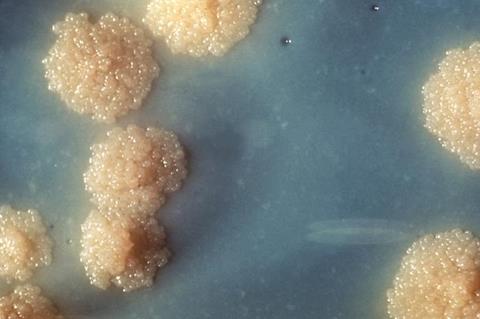In 2023, it was estimated that approximately 1.3 million children under the age of 14 contracted tuberculosis (TB). Alarmingly, more than half of these cases went undiagnosed, resulting in over 210,000 TB-related deaths.

In regions with a high TB burden, screening for TB infection (TBI) is essential, especially for individuals exhibiting symptoms or having close contact with confirmed TB cases. Effective screening is a critical step in reducing the number of deaths caused by TB.
READ MORE: A new smartphone-sized device can test for tuberculosis - here’s why that matters for children
READ MORE: Scientists close in on TB blood test which could detect millions of silent spreaders
Diagnosing pediatric TB presents challenges. The main reasons for this are the lack of child-appropriate diagnostic tools and the difficulty of performing invasive procedures in resource-limited settings. The tuberculin skin test (TST) remains a widely used and operationally valuable tool for detecting TBI and supporting the diagnosis of active TB. However, its accuracy can be compromised by prior Bacillus Calmette-Guérin (BCG) vaccination and infections with non-tuberculous mycobacteria (NTM).
Skin test reagents
To overcome these limitations, a new class of skin test reagents based on Mycobacterium tuberculosis (MTB)-specific antigens has been developed. The World Health Organization (WHO) has endorsed 3 such tests: Diaskintest® (Russia), C-TB skin test (Denmark), and creation tuberculin skin test (C-TST; China). All the 3 tests use the secreted antigenic target 6-kDa protein (ESAT6) and culture filtrate protein 10 (CFP10) as their diagnostic basis.
The C-TST, previously known as “ECST,” uses a recombinant ESAT6/CFP10 fusion protein as its reagent. A positive result is indicated by induration and redness at the injection site, signaling infection with MTB. Extensive phase III trials have confirmed the test’s safety and accuracy in adults. These trials showed the C-TST had a sensitivity of 91.2 % and a specificity of 69.7 %. Additionally, a phase II trial indicated that the accuracy of the test is unaffected by prior BCG vaccination in young children. In this report is presented the results of a phase III clinical trial of C-TST in children and adolescents.
Topics
- Asia & Oceania
- Bacillus Calmette-Guérin (BCG) vaccine
- Bacteria
- Clinical & Diagnostics
- C-TST
- Immunology
- Infection Prevention & Control
- Infectious Disease
- Medical Microbiology
- Mycobacterium tuberculosis
- Non-tuberculous mycobacterium
- One Health
- Rapid Diagnostics
- Research News
- skin test reagents
- tuberculin skin test
- tuberculosis







No comments yet